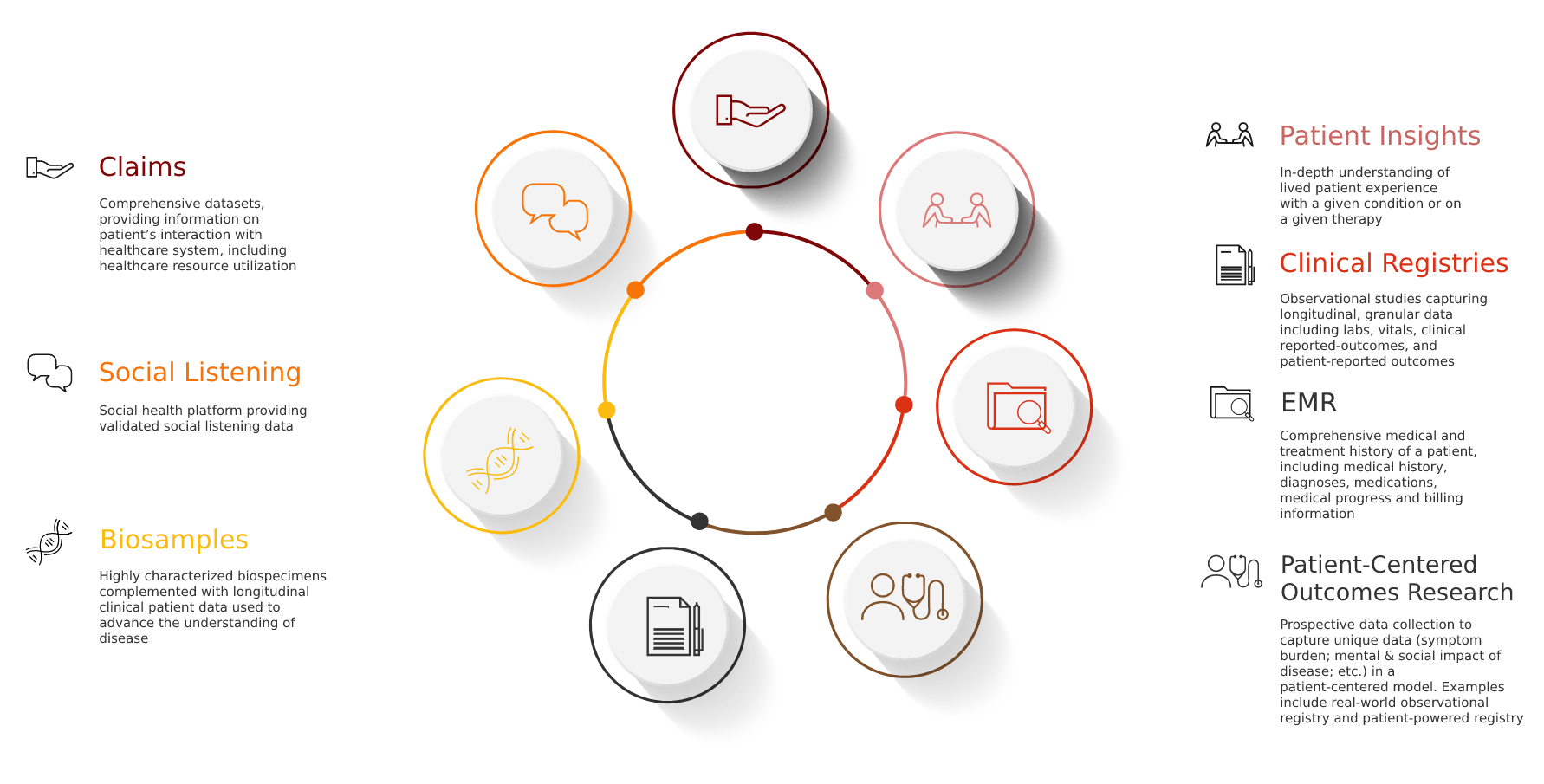
Longitudinal data provide insight on how patients cycle through medications and the factors influencing providers' treatment decisions.
Survival analyses are performed that examine treatment persistency and reasons for medication switching and discontinuation.
Examination of disease activity and lack of response to therapies can identify the burden of illness and unmet need of patient populations.
Prescribing practices are examined, including whether providers are following a treat-to-target treatment paradigm.
Understanding the patient's experience is pursued through the evaluation of patient-reported outcomes.
Treatment effectiveness and comparative effectiveness by drug, between classes of drugs, and within classes of drugs using validated outcome measures.
Analyses identify subgroups of patients who will have better responses to a particular drug class as compared to competitors.
CorEvitas' PHI enables linking deep clinical data with other sources such as Medicare, National Death Index, and other datasets such as claims and labs, at an individual level.
CorEvitas has linked its clinical datasets with Medicare data, creating an even more robust data set for analysis. Such data include claims, allowing for analysis of cost effectiveness and other health care utilization metrics.
CorEvitas worked closely with the National Death Index to link datasets, gaining further clarity on the patient journey. Such data are utilized to validate CorEvitas data and provide a complete set of information on individuals no longer participating in a registry.
CorEvitas can link our data with other sources, including EMRs and labs. CorEvitas protects patient confidentiality while matching patient data on an individual basis using data tokenization.